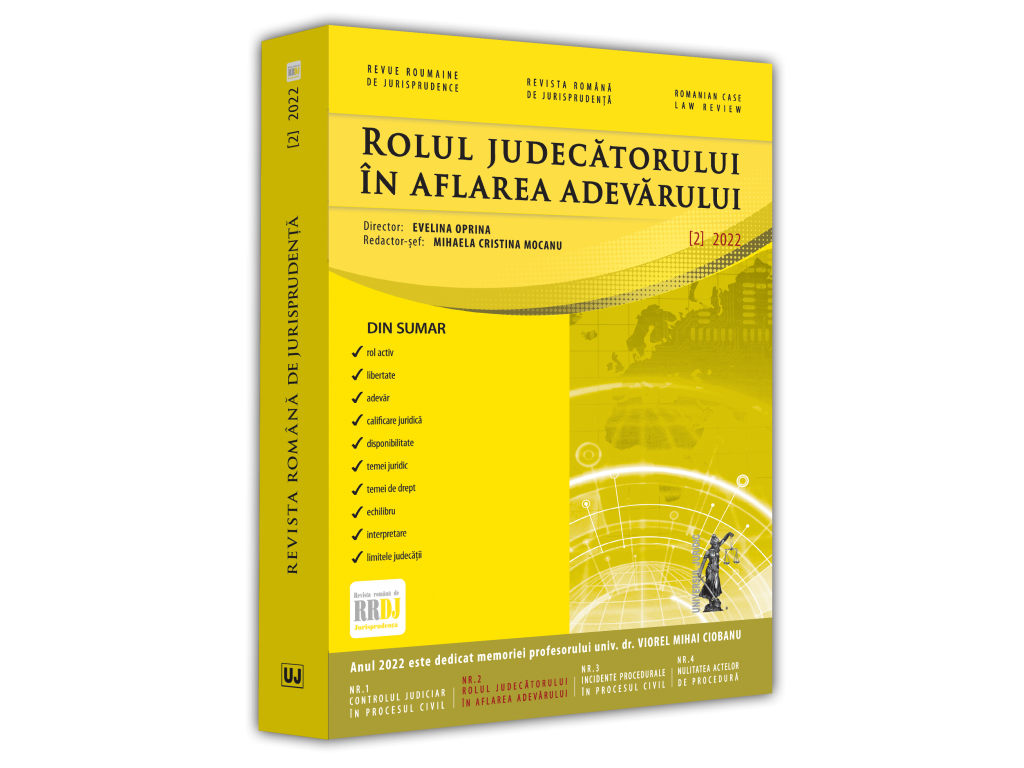Medical fault. Contractual civil liability of the doctor and the medical institution in another EU country. Legal relationship with a foreign element. Inadmissibility for lack of jurisdiction of Romanian courts.
JURISPRUDENȚĂ COMENTATĂ ŞI ADNOTATĂ
Abstract
The provisions of Article 1.065 of the Civil Procedure Code provide that the provisions of Book VII of the Civil Procedure Code shall apply to private law proceedings with foreign elements insofar as international treaties to which Romania is a party, European Union law or special laws do not provide otherwise.
It follows, therefore, that when there is a question of judging a case with an element of foreignness, involving the laws and courts of two countries in the area communicated, as in the present case, the international rules of European Union law will be applied as a matter of priority in determining jurisdiction.
In order to establish jurisdiction, the Court must first determine the legal nature of the dispute, in particular whether it is based, according to the claim, on contractual or tortious liability. This distinction is essential and obligatory, on the one hand for the correct identification of the Community rule governing jurisdiction, but also for the reason that the two forms of liability are distinct and mutually exclusive, and the existence of contractual liability, which has priority, excludes the existence of tort liability.
According to Article 7(1)(a) and (b) of EU Regulation 1215/2012, jurisdiction to settle the dispute lies with the courts of the place of performance of the contractual obligation where the contracted healthcare services were provided or should have been provided and which is located in another Member State.
There is no question of the application in the present case of the provisions governing jurisdiction in matters relating to insurance in Section 3 of the Regulation, since in the present case the plaintiff did not plead or prove that she had concluded a medical insurance contract in the foreign Member State.
As regards prorogation of jurisdiction, it can only occur under the terms of an agreement between the parties, as provided for in Article 25 of the Regulation.
Furthermore, even if there is no question of exclusive jurisdiction in the present case, as expressly provided for in Article 24 of the Regulation, the provisions of the penultimate sentence of Article 26 of the Regulation are applicable, since the defendant expressly challenged the jurisdiction of the court of another Member State by submitting a statement of defence to that effect before the court hearing the case. For these reasons we are not in the situation where he has appeared and accepted the jurisdiction of a foreign court in another Member State, the hypothesis of alternative jurisdiction being excluded.








